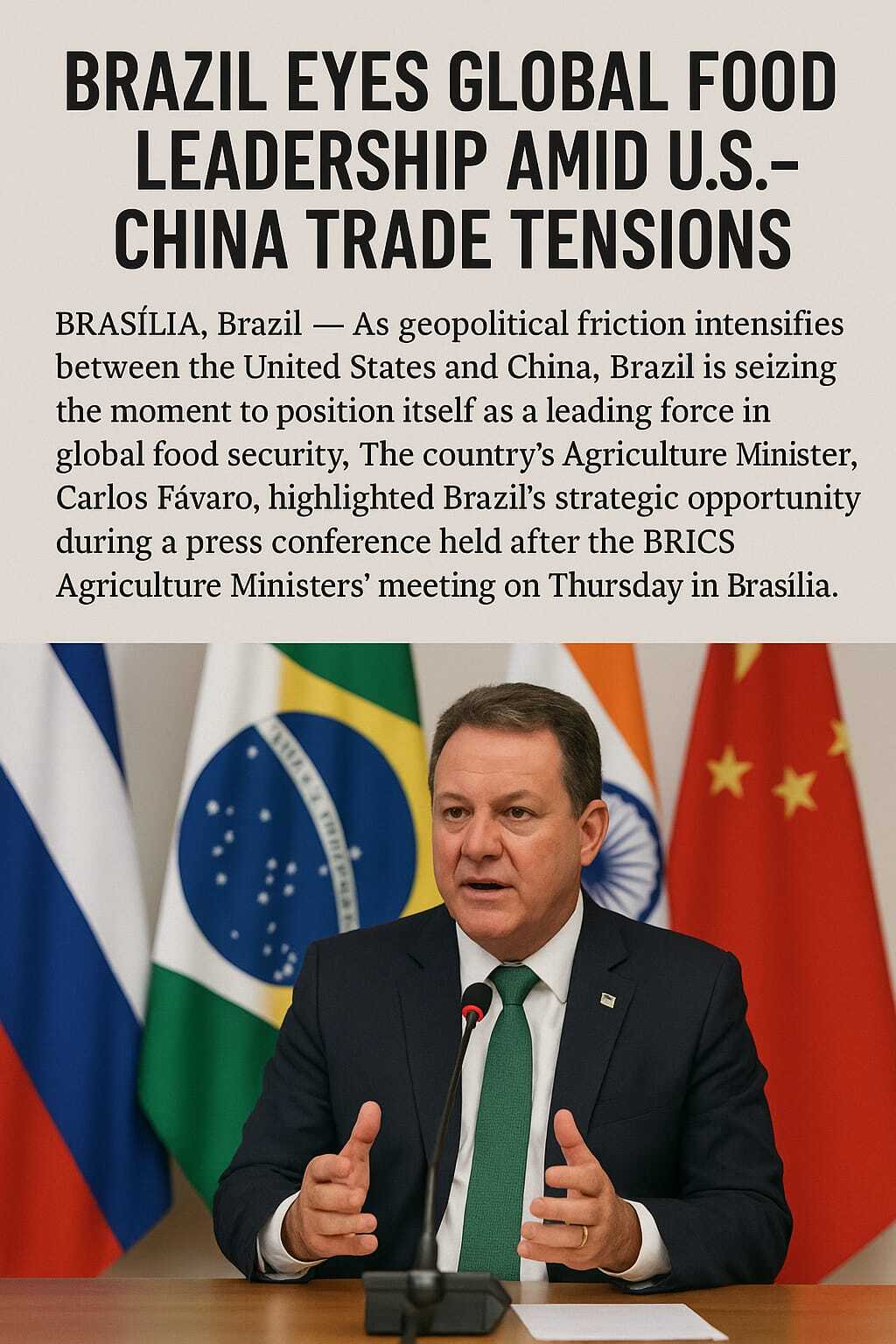BRASÍLIA, Brazil — As geopolitical friction intensifies between the United States and China, Brazil is seizing the moment to position itself as a leading force in global food security. The country’s Agriculture Minister, Carlos Fávaro, highlighted Brazil’s strategic opportunity during a press conference held after the BRICS Agriculture Ministers’ meeting on Thursday in Brasília.
The meeting gathered officials from the BRICS nations — Brazil, Russia, India, China, South Africa — along with newcomer Iran, to discuss shared agricultural priorities. Topics ranged from sustainable food production and land restoration to strengthening intra-bloc trade and fostering innovation in the agri-food sector.
Minister Fávaro stated that Brazil is committed to expanding its agricultural productivity while also embracing sustainability and inclusivity. He cited the rehabilitation of over 4 million hectares of previously degraded land, now returned to active food production, as a testament to Brazil’s ability to scale up responsibly.
A major focus of the discussion was China’s recent move to suspend beef imports from 395 U.S. processing plants, a decision that opens significant market opportunities for Brazil. Fávaro emphasized that Brazil is ready to meet China’s growing demand, underscoring the South American giant's status as a reliable and safe supplier of agricultural goods, including soybeans, beef, corn, poultry, and coffee.
“Brazil’s agricultural potential is unmatched — we are not only increasing our production but doing so with respect to the environment and technological innovation,” Fávaro said. “This positions us as a dependable partner for countries seeking stable and sustainable food sources.”
Brazil's appeal has been bolstered by its diversified crop production, competitive pricing, robust export infrastructure, and increasing global demand for food security solutions. In 2024, Brazil has already seen record-high agricultural exports, particularly to Asia and the Middle East. The BRICS meeting also emphasized south-south cooperation, with countries committing to knowledge-sharing and collaborative agricultural research.
Fávaro noted that Brazil would continue to work closely with both traditional and emerging partners to boost food resilience amid global uncertainties.
The outlook signals a strategic shift in global agri-food dynamics, with Brazil at the forefront. As the U.S. and China navigate economic tensions, Brazil’s proactive diplomacy and production capacity may further strengthen its influence in shaping the future of international food trade.
Follow & Subscribe:
👉 Agri-Food Update on LinkedIn for the latest updates and insights.
🌐 Visit us at www.agri-food-update.com for more information!



